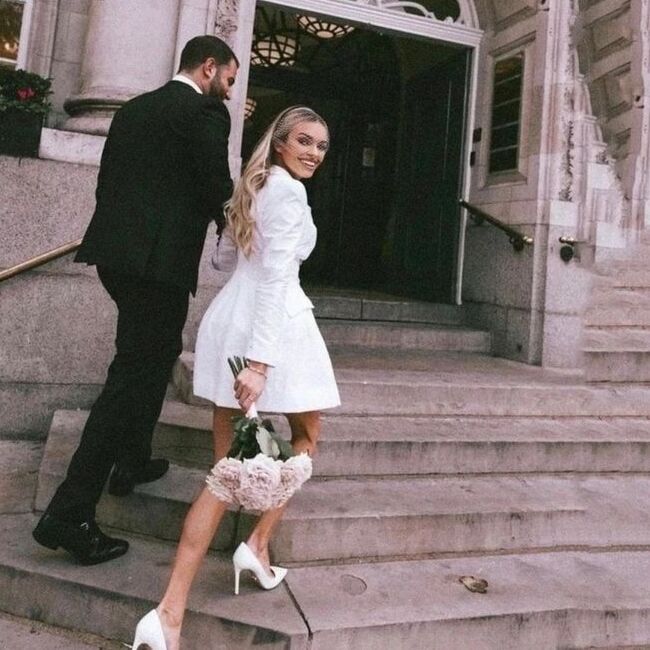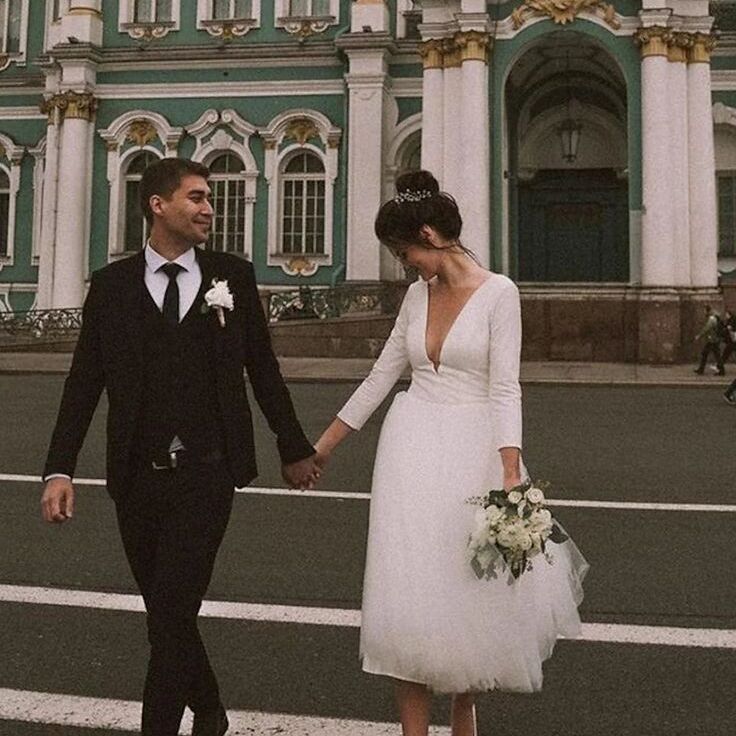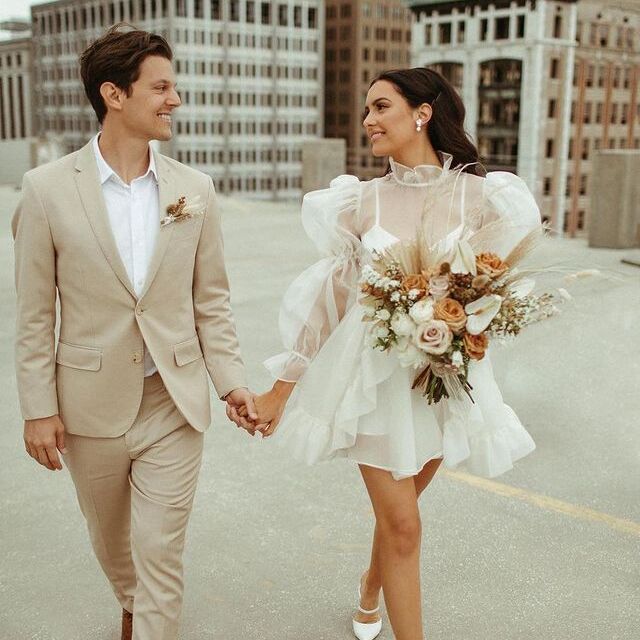The Appeal of Courthouse Weddings
Courthouse weddings are gaining popularity for many reasons. They offer a simple, intimate option that contrasts with traditional, larger weddings. Here are some key reasons why couples might choose a courthouse wedding:
- Simplicity: Courthouse weddings remove the complexity of planning a big event. This appeals to those who prefer minimalism.
- Cost-Effective: They are generally less expensive than traditional weddings. This is ideal for budget-conscious couples.
- Intimacy: With smaller guest lists, courthouse weddings provide a more personal experience. This helps couples focus on their love and commitment.
- Time-Efficient: Courthouse weddings usually require less time to plan. Some can be arranged in just a few weeks. This is perfect for couples who don’t want to wait.
- Stress Reduction: With fewer details to manage, courthouse weddings can reduce wedding-related stress.
- Unique Venues: Many courthouses have historic or architecturally interesting spaces. This can provide a beautiful backdrop for the ceremony.
- Flexibility: Couples have more flexibility in how they celebrate. They can focus on what truly matters to them.
Choosing a courthouse wedding doesn’t mean skimping on significance or beauty. It’s an appealing option for modern couples seeking a meaningful and straightforward way to say ‘I do.’

Key Differences: Courthouse vs. Traditional Weddings
Courthouse weddings and traditional weddings vary significantly. This section covers their main differences in various aspects.
Guest List and Venue
Courthouse weddings generally have fewer guests. This typically includes close family and a few friends. The ceremony happens in a government building, such as a courthouse or city hall. These venues are simpler but still offer a unique charm and elegance, often underlined by historical or architectural significance. Traditional weddings usually involve larger venues and more guests, accommodating extensive family and friend circles.
Attire and Customization
In courthouse weddings, couples often choose more casual or personalized attire. This reflects their personal style and makes the event feel intimate. Traditional wedding attire is more formal, involving intricate dresses and suits. However, customization is possible in both types. Courthouse weddings allow more flexibility, letting couples express themselves uniquely. Traditional weddings generally stick to conventional styles but can incorporate personal elements.
Budget and Timeline
Courthouse weddings are less expensive and quicker to plan. They can be organized in a matter of weeks and are lighter on the budget. This makes them ideal for couples looking for a straightforward, cost-effective way to tie the knot. Traditional weddings usually require more extensive planning, often taking a year or more. They involve larger budgets due to bigger guest lists and more elaborate arrangements. Each type has its financial and temporal considerations, appealing differently to couples based on their preferences and circumstances.
Legal Preparations for a Courthouse Wedding
Navigating the legal landscape is a must before saying ‘I do’ at a courthouse.
Understanding the Legal Requirements
Before setting a courthouse wedding date, get familiar with local laws. Each region has its own legal prerequisites for marriage. Common requirements include a marriage license, valid IDs, and possibly a brief waiting period. Some areas also require documentation to prove the end of any prior marriages. Make sure to gather all needed documents in advance to ensure a smooth process.
Scheduling Your Courthouse Wedding Date
Choosing your wedding date early is crucial. Courthouses generally need appointments booked around two months ahead. This timeline can vary by location, so check with your local courthouse. Remember, civil ceremonies are short, but planning is still key. Pick a date and time that suits you, your witness, and your guest list

Personalizing Your Courthouse Ceremony
Personal touches make your courthouse wedding memorable. Include aspects reflecting your relationship for a unique ceremony.
Vows and Ring Exchange
Writing your vows adds a heartfelt element, showing deep personal commitment. Exchange rings as a lasting symbol of your union, possibly with engravings or heritage pieces for added significance.
Decorations and Personal Touches
While options may be limited in a courthouse setting, small decorations like flowers or a cherished photo can enhance the ambiance. Check permissions beforehand to ensure a smooth addition of any personal items to your ceremony space.
Organizing Your Guest List
Organizing the guest list for a courthouse wedding requires careful planning. Although the number of guests is often less, clear and precise communication is key. Each attendee plays a significant role due to the intimate nature of the event. Here are some tips to manage your courthouse wedding guests:
- Keep the guest list exclusive to close family and friends, maintaining the ceremony’s intimacy.
- Inform guests well in advance to accommodate their schedules.
- Ensure everyone is clear about the time, location, and any dress code.
- Consider a digital platform for invitations and updates for efficiency.
- Prepare a backup plan for guests who cannot attend, such as a live video feed.
Communication and Coordination
Effective communication is vital, even for a small guest list. Coordinate with your guests to ensure everyone is informed and ready for the ceremony:
- Make use of group chats or email threads for easy information sharing.
- Designate a day-of contact to assist with guest questions or needs.
- Provide clear instructions on courthouse procedures to follow.
- Arrange transportation or directions, especially if the courthouse is in a busy area.
Role of Witnesses in Your Ceremony
Witnesses play an important role in a courthouse wedding. They not only stand as legal observers but also support the couple:
- Choose witnesses who are significant to both of you.
- Confirm their availability and understanding of their role early on.
- Inform them about any legal requirements or documentation they might need.
- Include them in the pre-ceremony communication for any logistical details.
By addressing these factors, you can ensure a well-organized and heartfelt courthouse wedding experience for you and your guests.

Celebrating After the Courthouse Ceremony
After the vows, consider how you might celebrate with your loved ones.
Options for a Small Reception
Planning a small reception after your courthouse wedding offers a cozy way to celebrate. You might consider a brunch or lunch at a local cafe. If you prefer something more private, a backyard gathering with close family could also be lovely. Remember to plan these events a few months in advance to ensure all details are in place.
Photography and Announcements
Capturing the day is essential. Hire a photographer who specializes in intimate events. After the ceremony, share your new union widely. Create digital announcements or use social media to spread the good news. Personalized photos can make these announcements even more special.
Future Celebrations and Events
You might plan a larger party later on. This can be a full reception or something simple like a garden barbecue. Decide what suits you best, ensuring it reflects your personal style and love story.
Courthouse Wedding Logistics
Navigating courthouse wedding logistics is crucial for a smooth ceremony.
Requirements and Waiting Periods
Before a courthouse wedding, understand the specific legalities. Check if your local courthouse requires a waiting period after obtaining a marriage license. Some places might request additional documents or formalities. Call or visit the courthouse’s website for accurate information. This helps avoid last-minute surprises.
Costs and Officiant Details
Courthouse weddings usually cost less than traditional ones. Expect to pay for the marriage license and a small ceremony fee. Costs vary by location, so check local rates. Most courthouses provide an officiant, like a judge or clerk. If you prefer a personal officiant, confirm if the courthouse permits this and prepare accordingly.
Ensuring a Legally Binding Marriage
Make your marriage official with careful documentation. Double-check that all forms are filled out correctly. Ensure there are no errors on your marriage license before and after the ceremony. This guarantees your union is legally recognized. Keep official copies of your marriage certificate in a safe place.